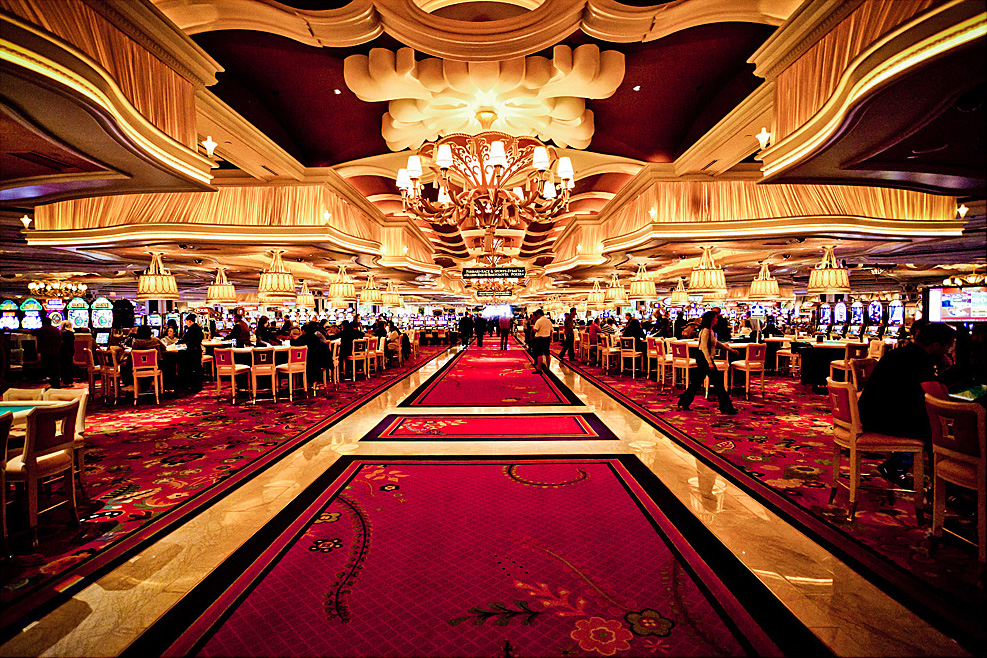Casino games have long been a significant aspect of human culture, delivering not just entertainment but a captivating reflection of our dreams, dreams, and concerns. From the turning reels of a slot machine to the skill-based strategies of poker, these games represent a range of human emotions and incidents. At their core, casino games are more than a chance to earn cash; they are a reflection of life itself, where risk versus reward intertwine and fate can change in an instant.

As players assemble around tables or sit in front of brightly lit machines, they engage in a ceremony that transcends mere gambling. These games echo our natural desires for connection, excitement, and the quest for chance. They also disclose deeper truths about human behavior, such as our relationship with fate and the excitement of uncertainty. In exploring casino games, we uncover not only the mechanics of play but also the rich tapestry of the human experience, showcasing our intertwining narratives of hope and reality.
The Psychology of Gambling
Wagering is deeply rooted in the psyche of individuals, appealing to various emotions and desires. The excitement of taking risks is a fundamental aspect that attracts participants, whether it’s excitement of spinning a roulette wheel or the excitement of drawing a winning hand in a poker game. This rush of adrenaline is often compared to other forms of thrill, as the uncertainty of outcomes elicits a distinct psychological response. Players often find themselves captivated by the chance of striking it rich, leading to an irresistible draw toward casino games.
Another, a crucial component of the psychology behind gambling is the concept of hope and ambition. Participants often nourish dreams of financial freedom and the luxurious lifestyle that can follow winning. This optimism fuels their ongoing participation in casino games, as it provides a sense of purpose and the belief that a life-changing win could be just one wager away. The story of overcoming odds and finding success resonates with many, reinforcing their dedication to play and involve themselves with these games.
Finally, social aspects play a crucial role in gambling psychology. Casino environments are designed to foster social interaction, where gamblers gather to share the experience of wins and losses. This shared aspect not only amplifies enjoyment but also affects behavior, as individuals often imitate the actions of others around them. The social validation found in shared excitement can enhance the emotional experience, making casino games a mirror of not just personal desires but also collective engagement within the gaming community.
### Risk and Reward: A Double-Edged Sword
Gambling games embody the delicate balance between danger and reward that resonates deeply with human psychology. The rush of placing a bet is often accompanied by a jolt of energy, as players are confronted with the chance of winning big, yet fully aware of the possibility to suffer losses. This dual experience reflects a core aspect of life: the choices we make often come with inherent risks, and the quest for benefit can push us to embrace risks we might not otherwise consider. In this way, casino games mirror real-world decisions, enticing gamblers to risk not just their funds, but also their aspirations.
The allure of jackpot prizes and winnings fuels a sense of optimism, encouraging gamblers to envision a brighter future that could emerge from a lucky spin of the wheel or dealing of a hand. This optimism can drive individuals to engage in greater risks, pushing them to push their boundaries in search of financial gain. However, just as in life, the results of these decisions can lead to both victory and despair. The narratives of both big winners and those who have faced losses everything at the tables demonstrate the random nature of luck and its significant repercussions on our futures.
Ultimately, the experience of engaging with gambling activities serves as a vivid illustration of the human condition. Every round played is filled with the tension of ambiguity, as players weigh the gains against the dangers. This dynamic not only highlights the thrill that comes with gambling but also reveals the vulnerabilities that come with the desire for more. As we explore the complexities of decision-making and consequence in both the casino and in life, we find that the quest for gain shapes our sense of self and journeys in deep ways.
Community and Isolation in Casino Environment
Casino culture is a special mix of communal interaction and personal pursuit, reflecting the dualities of individual experience. Gamblers often gather around tables, sharing in the excitement of the action, rejoicing in wins, and sympathizing over losses. Nhà cái F8BET This communal aspect is crucial, as it establishes a sense of community and bonding among diverse groups of people. Regular visitors to gaming establishments may build friendships and establish routines, turning the casino into a second home where they feel linked to a larger community of gamblers.
However, the allure of casino activities can also result to loneliness. As players become engrossed in the excitement of playing, they may withdraw from personal connections or fail to interact with the environment outside the gaming space. For some, the search of a jackpot can distract from genuine connections, leading to loneliness. The experience of being surrounded people yet experiencing solitary is not uncommon, as the attention shifts from shared enjoyment to the individual stakes of each player’s journey.
This interplay of community and solitude creates a rich tapestry that defines gaming culture. https://f8betlv.com/ It showcases the intricacy of social interactions, where joy and sorrow exist together. Gambling venues serve as both a sanctuary for social engagement and a platform for individual struggles, demonstrating how deeply connected our desire for companionship and the personal quest for wealth can be. In navigating this environment, gamblers confront their own stories—seeking both the rush of the game and the fellowship of other players, eventually mirroring the wider spectrum of human experience.